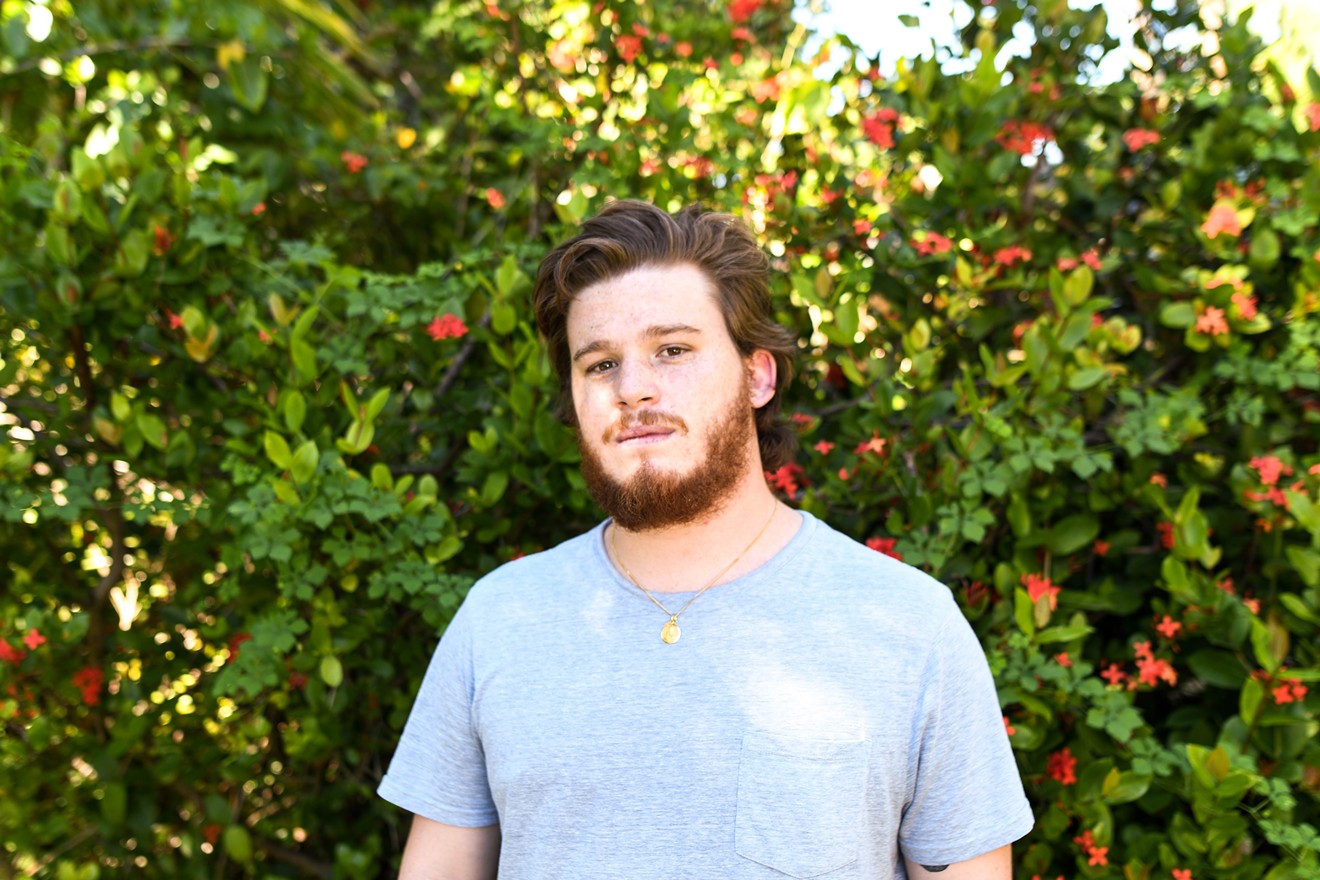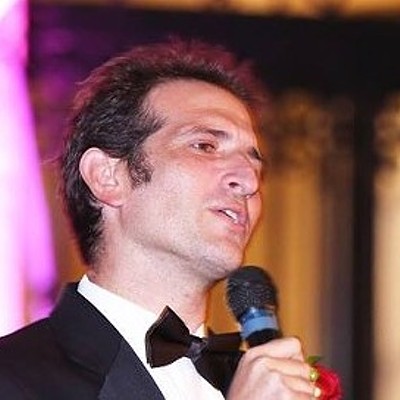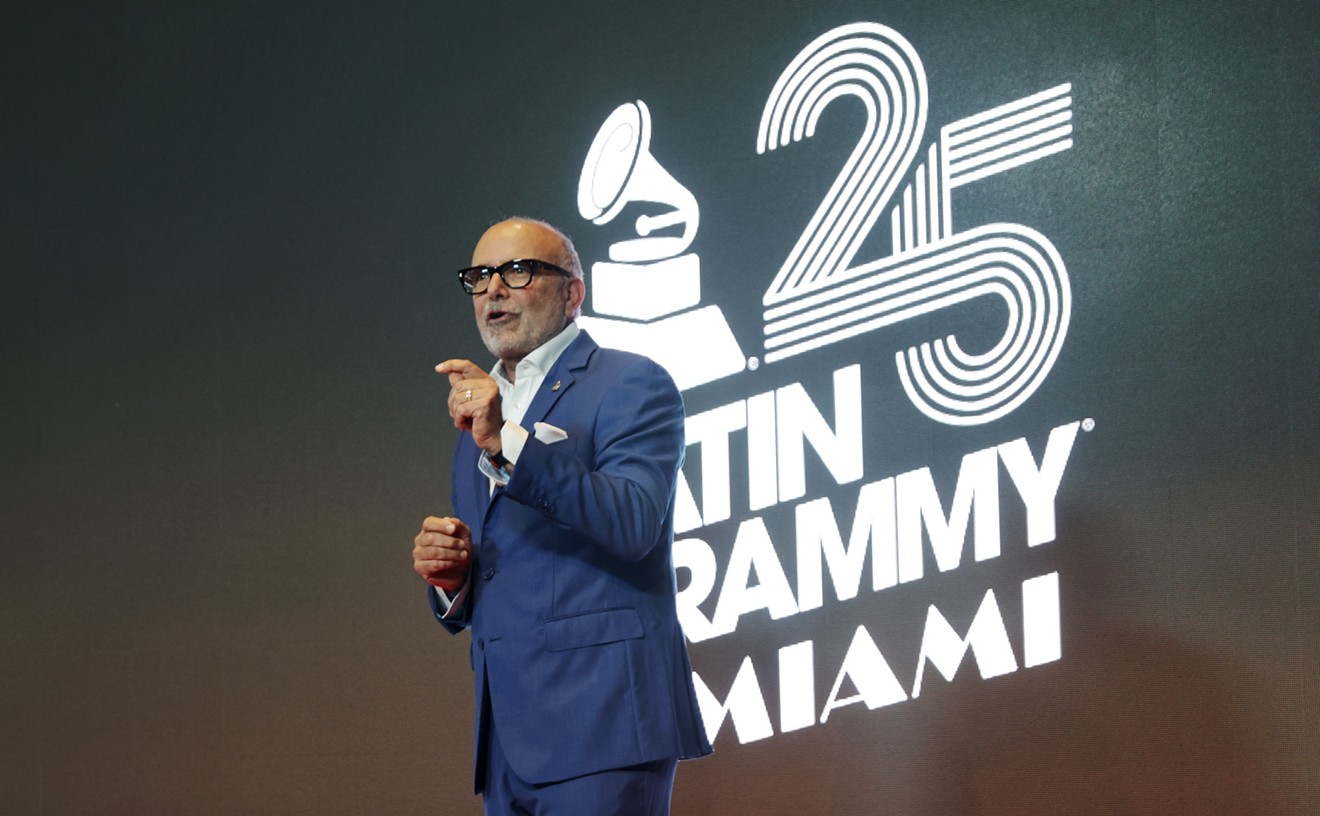Ritchie Valens in the '50s and Los Lobos in the '80s had success covering "La Bamba," and you can still hear Santana's "Oye Como Va" on every classic rock station. But just about every other punk, metalhead, or rock 'n' roller who sang in Spanish has found deaf ears in the English-speaking world. That hasn't stopped a multitude of Miami rockers from trying.
A few years ago, Arnie Carrillo attempted to spearhead a Spanish rock movement in Miami. Every month for the better part of a year he organized an event called Radio Bemba at Churchill's Pub. His band, Los Inmigrantes along with others like Atajos, Aura
Another band that used to play Radio Bemba, the Rockadictos, have also changed languages. After ten years of rocking only in Spanish, its newest release, The Rockadictos III, is in English.
"I grew up in Argentina listening to Faith No More, the Ramones, and the Sex Pistols — not understanding what they were saying, but I still knew what I liked. Now that I speak English I like them even more, but it was the music that got me," explains singer Javier Arce. "The voice is an instrument. Sometimes people sing in Spanish so fast that even I don't understand their words, but I still like the music."
For Arce, writing songs in his second language is partly in the hopes of finding a broader audience. "A lot of times we could only play Spanish-speaking bars," he says. "We'd get their attention with our music, but we think we'll get more opportunities if I sing in English.""It's difficult to find venues in Miami for English rock bands. Imagine how difficult it is for Spanish rock bands."
tweet this
Singer and songwriter Simon Grossmann has no such plans to cross over linguistically, at least not yet. He moved here with his family from Venezuela as a teenager and at 23 has high hopes for his newest Spanish-language record, a currently untitled project he's aiming to release in September. "I started out writing songs in both Spanish and English," Grossmann says. "But my first really good song, 'Aguitaecoco,' I knew I couldn't write the equivalent in English."
He's had enough success to tour Mexico, Colombia, and the Northeast. Surprisingly, he says, the fans in the U.S. were more enthusiastic. "In the beginning, I was getting mostly Venezuelans," he says. "But now I'm starting to branch out with third-generation Cubans or guys whose girlfriends speak Spanish. It's cool to see them learn the words and sing along."
Grossmann is trying to tap into Latin alternative festivals that have been springing up. He already got to play South by Southwest in Austin,
While Grossmann is cynical that a rock band singing in any language could ever reach "Despacito's" level of popularity, he still hopes Fonsi's success bodes well for Spanish-language rockers.
"People like to bash reggaeton," he says. "But it's on the forefront of popular music, which is good for Spanish-language music in general. It gets people used to listening to Spanish."













